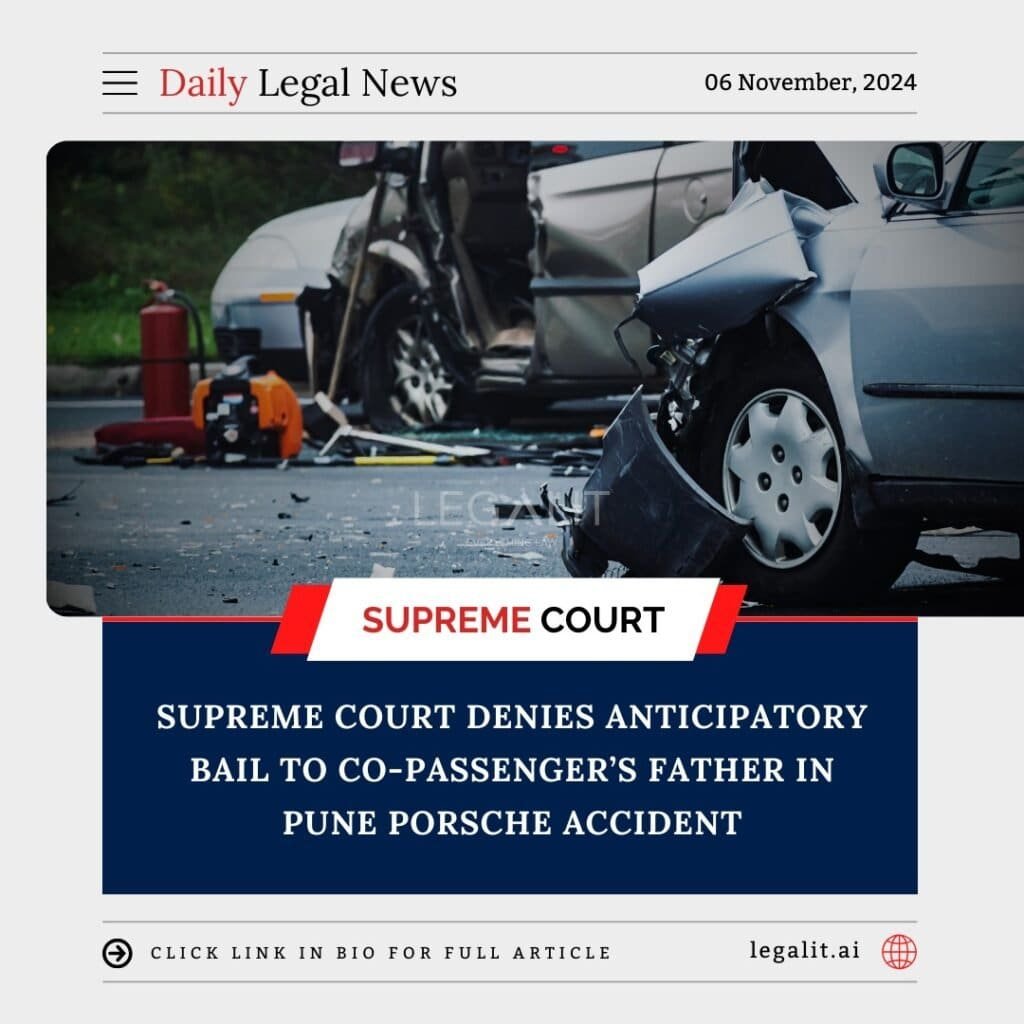
The Supreme Court of India recently denied anticipatory bail to the father of a minor who was a co-passenger in the highly publicized Porsche accident in Pune. The incident, which involved a high-speed collision leading to severe injuries and property damage, has raised significant concerns over accountability and parental responsibility when minors are involved in reckless or illegal activities.
Background:
The accident took place in Pune, where a Porsche, reportedly driven recklessly by a minor, caused a serious crash. This led to criminal charges being filed against those associated with the incident, including the guardians of the involved minors. The father of one of the minors in the vehicle subsequently sought anticipatory bail, anticipating arrest as part of the ongoing investigation.
Court’s Rationale:
In its decision, the Supreme Court emphasized the importance of accountability in cases involving minors and reckless endangerment. The court noted that, given the severity of the accident and the public safety concerns it raises, anticipatory bail was not warranted in this case. The ruling reflects the judiciary’s stance on upholding the rule of law and deterring similar incidents through stringent legal consequences.
Existing Measures:
Under Indian law, guardians can be held accountable when minors are involved in criminal acts, particularly in cases involving negligence or endangerment. This decision may also influence stricter regulations concerning minors driving high-powered vehicles and the responsibilities of their guardians.
Conclusion:
The Supreme Court’s refusal to grant anticipatory bail underscores the judiciary’s firm stance on accountability in incidents involving reckless behavior by minors. It sends a clear message about parental responsibility and the consequences of failing to monitor and control minors’ access to high-speed vehicles. The case is likely to continue, focusing on further inquiries into negligence and responsibility within the family and legal guardianship framework.